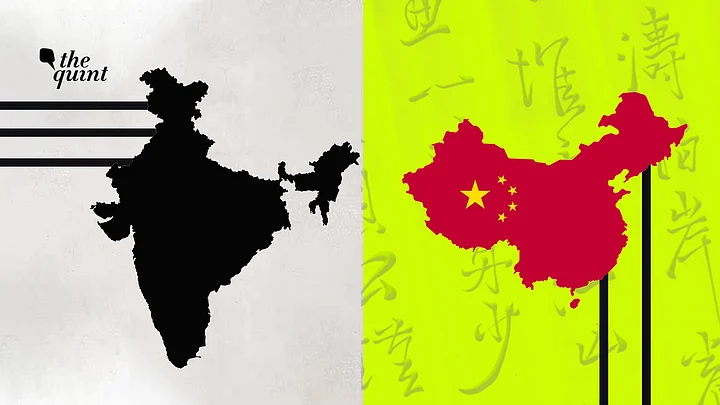Amid much controversy over Chinese being dropped from the options of languages that students can opt at the secondary level, the Chinese Embassy in India on Tuesday, 4 August, warned against ‘politicizing normal cooperation’ between the two nations.
In statement, Ji Rong, Spokesperson of Chinese Embassy in India said he hoped that “Indian relevant parties Chinese China-India higher education cooperation in an objective and fair manner, avoid politicizing normal cooperation, and maintain healthy and stable development of China-India people-to-people and cultural exchanges.”
The statement further said the Confucius Institute Project has been running in India for over 10 years and that all of the institutes were established jointly by Chinese and Indian universities “after signing legally binding cooperation agreement.”
What triggered China’s statement?
Mandarin or 'Chinese' was dropped from the list of options of foreign languages that can be taught in schools, according to the National Education Policy (NEP) 2020.
While the language was a part of the draft version of the policy that was released in May 2019, it was missing from the final policy document that was approved by the Union Cabinet recently.
What about higher education institutes?
According to a report in The Hindu, the Ministry of Education has now sent a letter to universities that had run Chinese language programmes in association with Hanban, the official Chinese language training department that is responsible for the running of Confucius Institutes outside China.
In the letter reported by the newspaper quoted above, the Ministry of Human Resource Development has reportedly said that the ministry, along with the University Grants Commission (UGC) is reviewing the work undertaken by higher education institutions with respect to educational agreements with foreign institutions.
“As part of this process we would like to review the activities undertaken by the Confucius Centre in your university/institution affiliated to your university.”MHRD letter as reported in The Hindu
Which institutes or universities have received this letter?
India has two operational Confucius Institutes at the moment – one at the University of Mumbai and the other, at the Vellore Institute of Technology in Tamil Nadu. According to the report, the ministry’s letter has been received by at least five institutions that run Chinese language programmes.
These institutes have been asked to send details of collaboration with the Chinese government on the language-teaching front by 5 August, after which they will be reviewed by Education Secretary Amit Khare.
What are experts saying?
According to Dr BR Deepak, Although the Center of Chinese and South Asian Studies at Jawaharlal Nehru University had signed a Memorandum of Understanding with the Confucius Institute in 2007, there was no progress on the agreement due to differences over faculty structure.
He also said that the government is stepping up vigil on Confucius Institutes over spying allegations against them.
“JNU had differences with the CI regarding the faculty structure. After that there was no development in it. The government is doing this to stop the spying work allegedly being done by Chinese institutions.”Dr BR Deepak, Center of Chinese and South Asian Studies, JNU
Dr Deepak said that both India and China have had a long history of socio-economic and cultural ties and that it is in India’s own interests that learning of Chinese be maintained. According to him, we must keep a close watch on the neighbouring country, irrespective of its friendly or hostile attitude.
He points out that learning of Chinese is crucial to decoding intelligence that could be of significance to India.
Dr Vibha Surana, Director of the Confucius Institute at the University of Mumbai said we may have good or bad relations with China, but that doesn’t change the fact that we are neighbours who have long shared a rich past.
“The possibility of employment increases after learning Chinese language. In India, we have worked hard to set up this Chinese-language institute,” she added.
(At The Quint, we question everything. Play an active role in shaping our journalism by becoming a member today.)
